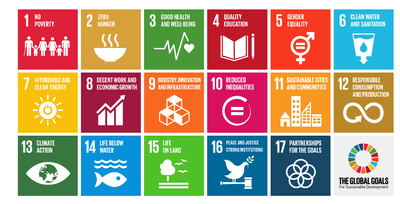THE ADO ABOUT DEVELOPMENT RESULTS – I had my first experience of international development as an undergraduate working as a volunteer for AIESEC, the world largest student-run international organization. AIESEC runs like a mini United Nations, giving young undergraduates the opportunity to work on community issues with a global perspective. I joined AIESEC in 1993 and became a member of the local Executive Committee in 1995. From then till the end of my collaboration with the Organization, I held leadership and coordinating positions in three countries (Nigeria, Gabon and France) while I continue to do other development work with studies.
In many of the assignments I undertook, there is one thing that is common a continuous attempts to introduce innovation in order to improve the impacts of the actions of a team. I studied economics and education, with a minor in political science for my first degree. I changed to international affairs for my masters after reading the speech of Muhammad Yunus, the founder of Grameen Bank at the State of the World Forum, 1997, where he stated clearly that some economic and financial theories and premonitions we have helped us to create institutions that are not there to help alleviate poverty, but rather sometimes aggravate the situation by creating barriers to people coming out of poverty. He let this our while narrating how the banks he approached to lend money to poor Bangladeshi artisans for small scale businesses, refused him on the pretext that theories had proved that poor people cannot repay their credit. He will prove that wrong afterwards when he borrowed in his name and started lending to the poor. Those theoretical turnarounds as we know is now and example the world has take from the Nobel Laureate on economics, called Micro Credit.
Like Dr. Yunus in my little corner, I started to kind of really question the economic theories I have studied until another time when I stumbled on another issue that was making wave at the time, sustainable development. As I read this concept, it began to make sense to me what economics seemed to have ignored for a long time, an issue which might prevent future economic prosperity, in terms of environmental continuity.
In economics, each time we draw the supply and demand chart, we lay emphasis on production and consumption and how demand spurs supply and vice-versa. Herman Daly, in his 1996 book, the Economy of Sustainable Development, draw particular attention to the fact that the source of supply, the raw materials used, which are either irreplaceable or irreversible on the side of the damage done through their extraction, were not accounted for. He went further to say that at some point there will be need for us to rethink our economics mentality and give rooms to a fresh intellectual economic theories that prioritize the source of riches and not so much on how to convert the material sources to riches and consumables that will in any case, not be possible to extract in the same rhythm in the nearest future.
Dalys theory confirmed what has been written in the Limits to Growth published in the 70s. Today, it is no mere news that the world is heading for a doom with the effects of climate change and environmental degradation that it has become one of the major preoccupation of modern times to balance economic growth with ecological sanity and the third point, in the pillars of sustainable development, social cohesion.
The mentality of it is impossible to continue to do business-as-usual has been continually reinforced since the late 1990s, and it cut across programmes and processes of international, national and local development governance. This is also coupled with the sense of urgency that actions towards poverty eradication in developing countries are crucial and needs a rethink. Africa is at the centre of this sense of urgency.
During my PhD coursework, whilst I was preparing the proposal for my thesis, achieving sustainable development in Africa was for me an interesting and cogent topic to devote many years of research on. However, as I read deeper and deeper into issues, it dawned on me that there are many challenges that will not make sustainable development to work. Out of these, the running of public institutions in Africa came out as number one.
I remember reading about the fact that in 1997, five years after the ground-breaking Earth Summit held in Rio de Janeiro, Brazil, Maurice F. Strong, the Secretary-General of the Summit, while commenting that most of the decisions reached in 1992 are still at rhetoric levels for governments, highlighted a good number of progress already made by the private sector in what he called practical examples of success that we can build on[1]. In the same spirit, during the course of the World Summit on Sustainable Development (WSSD) held in Johannesburg in 2002, one unidentified commentator mentioned the hope of achieving sustainable development lies with NGOs and the private sector». While we can ascertain the affirmation of the former commentator, the origin and accuracy of the latter is yet to be verified and may not be totally right after all – but the basis for the reactions of both on the subject provided a food for thought.
Apart from the fact that the burden on the environment brought about by rapid economic and technological progress has been the major responsibility of business, hence the need to look towards them for effective kick-offs for solutions, their role in the campaign for development notwithstanding, the traditional way by which issues are resolved and the ferocity of goal setting, targets and result orientation have been well established as major success factors, to the extent that the private sector is now a major force in todays international/economic affairs.
Maurice Strong challenged other institutional machineries – governments in particular – on the need to follow the examples of business by manifesting more enthusiasm and rapid response to the challenge of sustainable development, and perhaps, in the deployment of resources and approach to efficiency, which governments generally lacks, and the comment that followed quickly wrote government off as a hope for better future. Yet, we cannot undermine the role of governments, politics and public service in any nation as far as development administration is concerned. Government and the civil service will continue to play significant roles in the carriage of development, but they must strive to upgrade action, procedures and institutional systems to meet the current challenges in order to be more effective.
It is not new to hear about political and public service reforms. Recent reform moves in the United Nations system testify to a scenario of climax in the necessity laid by complex challenges which need alternative responses to which conventional, business-as-usual systems could not provide any. Africa has had an ample of reform attempts, both in joint consensus or country level dimension, which carries some elements of development management injunctions in outlook and process re-shaping, such as, decentralization, downsizing, modernization, accountability and emphasis on goals rather than process as inherent in traditional administrative procedures.
Although results of such attempts are visible in some cases while many still leave doubts on whether reforms are better tools to upgrading development procedures, one cannot but pinpoint on the tendency of a movement from administration to management in a development or international development environment. Investigate into the depth of public sector management has generated a work area and an applied discipline with names such as Managing for Development Results, results-Based Management, development effectiveness, as alternatives for efficient administration and good governance, both at the international level and the African political economy and development survival. The examination of the evolution of approaches and issues that made its infusion into international development a necessity as well as the various ways by which its meaningful adoption can provide answers to some of Africas development deadlock has remained an important research subject.
As at today, Africa, despite its promising economic growth, lacks the adequate institutional ingredients for promoting equitable economic, environmental and social development for its people.
I agree there has been enormous progress, between the year 2000 and now, but there is still a long way to go in covering up the lost years of development backwardness.
I eventually did not write a thesis on sustainable development in Africa, rather, I chose to research on the management of public institutions in relations to achieving international policies on development in Africa, which I titled: Development Management and the Political Economy of Africas Renewal towards Assessable local Impacts of Evolving International Development Norms and Policy-Drive.
In my thesis, I retraced the history of international development and what brought about us to where we are today in the desires for results. It was clear that experience made it that conditions and situations are not static, whereas institutions, especially in developing countries had relied on precedents and were not moving with the alterations in real local development situations. Process overrides impacts and managers were not paying attention to the results of their actions as it concerns the set of people we refer to as clients in development.
Some NGOs and development agencies learnt these lessons earlier enough, while the UN family as at that time are already in the process of in-depth reforms for decentralization and results orientation. Africa was just beginning to embrace the idea and so I concluded that there should be a synergy between the international actions and regional, national and local processes.
I discovered Results-Based Management and the Managing for Development Results that were just about gaining popularity as remedy. My work afterwards in international development further reveals the loads and loads of efforts the international community is putting. I also found out there is need for national leadership, political and administrative apparatus to consolidate on the international action.
We are about one year to the deadline of 2015 for achieving the MDGs, and on-going consultations points to the fact that the Post-2015 has adequate provision for Africa to consolidate on its development progress. Pointers are already on the integration of the fundamental need to reinforce Africas institutions to achieve this goal, by increasing the strength to deliver results and not buried in process where there are movements and no motions.
It is predictable that making much ado about achieving this for results objective will help further the development effectiveness in Africa.
———————————————————–
[1] For further readings, see Maurice F. Strong (2002), Bridges to Sustainability-Moving toward Sustainable Development: the Private Sector’s Crucial Role, UNDP, http://www.undp.org/pppue/pppueold/library/files/book1/strong.html


